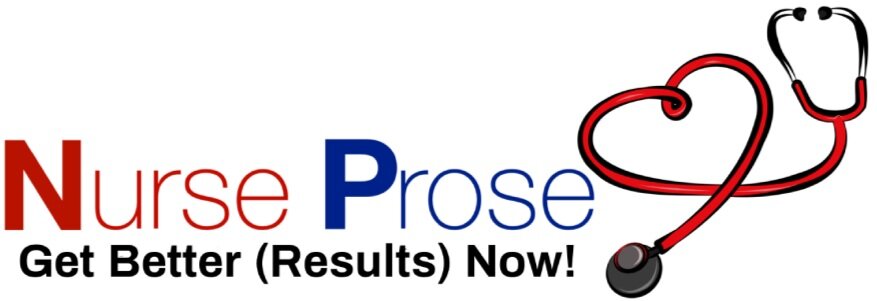3 Common Nursing Resume Mistakes to Avoid
Becoming a registered nurse is an accomplishment to be proud of, but it’s only the start of your journey in the healthcare profession. Many nurses fresh out of college run into problems when finding a good first job in the industry. The problem isn’t a lack of employment for nurses. However, there has been a dramatic increase in the number of licensed nurses, so having a good RN resume is more important than ever. At Nurse Prose, we help nurses prepare resumes that make them stand out and fix errors that could cost them an excellent job opportunity. Here are three common nursing resume mistakes to avoid.
Incorrectly Listing Credentials
Candidates for nursing positions often have many different credentials that they want to share with potential employers, but it’s important to list them correctly. It’s not about which credentials you think are the most important, rather there’s a standard way to list credentials after your name. According to the American Nurses Credentialing Center (ANCC), you should start by listing your highest-earned degree, followed by your licensure, and then any additional specializations and certifications. A properly formated name in credentials would like: Maryanne Smith, MSN, RN, CNS. In this example, Ms. Smith has a Master of Science in Nursing, she’s a registered nurse, and a clinical nurse specialist certification. Besides using this formatting, include a list of your degrees, licenses, and accreditations, with any applicable expiration dates at the bottom of your resume.
2. Not Using Relevant Keywords
As the pool of nursing candidates continues to grow, more employers are relying on automated systems to help them narrow down their selection. These systems include applicant tracking systems (ATS) that scan resumes first to see which applicants are worth further review. If a resume is missing the relevant words the employer wants to see, an applicant may be passed over before a human ever sees their resume. The key to the right words to us is often in the job posting. The terminology used in the job listing indicates what kind of things they’re looking for, so using some of the same words in your resume can make it easier to pick up by an automated system. It’s also a good idea to look at job descriptions for the position to find relevant keywords.
3. Using One Resume for All Situations
The importance of using relevant keywords for a particular application illustrates the need to have different resumes for the various roles you’re applying for. A one-size-fits-all resume may be convenient for you, but it’s a guaranteed way to fall through the cracks of a job search. If you’re the one general resume in a pile of resumes that are fine-tuned to the position, it’s hard to see why the hiring manager would choose the less-specialized option. Every role is unique, and hiring managers are trying to find a person who understands what the position entails and has the skill to accomplish the task. What you can do is have a basic resume that you modify as needed for each job you’re applying for. Depending on the situation, you might need rework elements, make specific experiences more prominent, or list related skills or special certifications that you left off the more basic version of your resume.
If you need assistance with your nursing resume, Nurse Prose is here to help. We have professional resume writing services that can help you start from scratch or improve an already existing resume. We even had rush services if you need a new nursing resume in a hurry. Contact us to learn more and get started on an updated resume that will improve your career.

